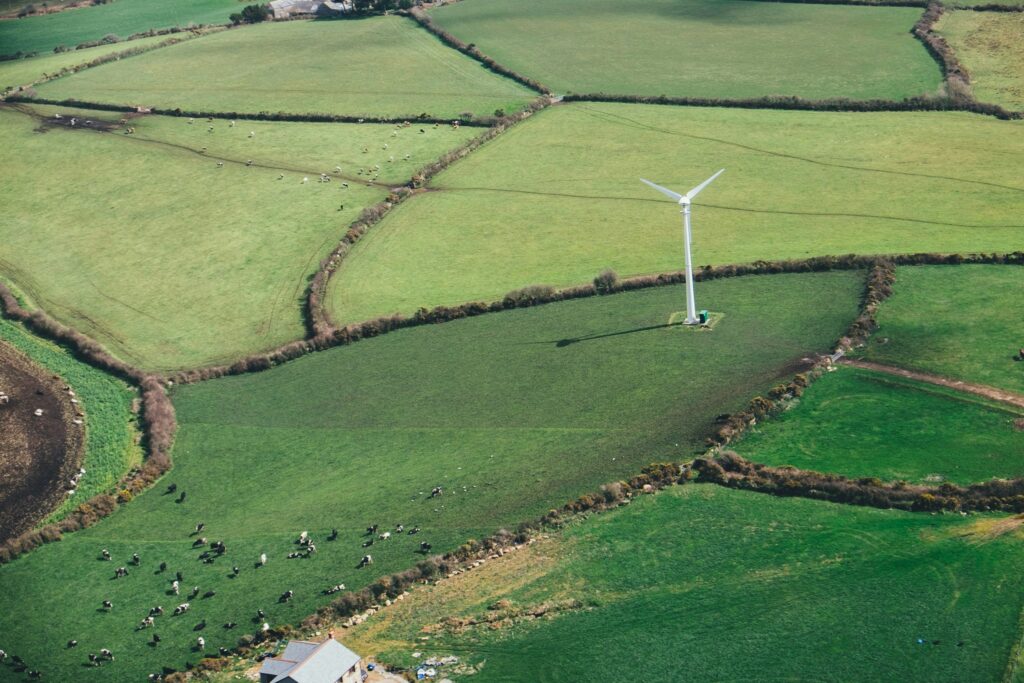
Global food production is caught in a paradox.
On the one hand, there is a requirement to continuously increase food production in order to feed a growing global population – the demand for eggs, meat, milk and seafood is projected to grow by 70% by 2050.
On the other, food production contributes approximately one-third of global greenhouse gas emissions, meaning there is an urgent need for sustainable solutions
These challenges present the sector with an enormous opportunity to readdress the balance for more sustainable food production with the help of new and emerging technologies.
The future is precision
One such solution is the concept of precision livestock farming.
The integration of advanced technologies can begin to address the environmental impact that farms animals have on the climate and help us view it within the wider context of sustainability goals.
As with achieving any goal, measurement and monitoring play a critical role in tracking progress and helping us to better understand where gains can be made.
Data-based precision services support producers by providing tools that optimise resource usage, reduce waste and improve animal health and welfare while maintaining profitability through sophisticated monitoring systems and data analytics. In this way, precision services leverage cutting-edge technologies to make the invisible visible.
The unprecedented accuracy in measuring the environmental impacts these technologies enable can, and will, prove invaluable to measuring and reporting compliance with corporate commitments and regulations while helping to satisfy consumer interest in sustainable food production.
Tech and tradition
As the world faces growing demands for food and heightened environmental pressures, technology is emerging as a powerful ally in transforming our current food production.
These innovations, such as the introduction of artificial intelligence (AI) generate targeted insights and foresights not only enhance productivity but also enable data-driven, environmentally responsible practices across the food value chain, paving the way for a more sustainable and resilient future in agriculture.
dsm-firmenich has led the industry with precision livestock platforms like Verax™ and Sustell™.
Verax™ is the world’s first blood based early warning system to detect & predict nutritional deficiencies and diseases, paired with technology to provide customised solutions. Verax empowers producers with data-driven insights to optimise nutrition, prevent health issues, support animal welfare and reduce resource waste.
Sustell™, a pioneering lifecycle assessment platform, equips farmers with actionable insights to monitor, validate, and improve the environmental footprint of animal protein, addressing the urgent need for sustainability.
The combined use of data through platforms like Sustell™ unlocks multiple value opportunities and serves as a new business diagnostic for farming. It identifies areas for improvement to bring farms in line with best practice, and become more efficient, leading to improved farm economics. Additionally, it satisfies downstream supply chain demands on Scope 3, addresses the latest evolving food eco-labelling, and taps into green financing opportunities, including carbon markets.
FarmTell Milk™, a smartphone dairy herd management app, uses LORE, an AI engine, to optimise feeding schedules and deliver recommendations in real-time by collecting and analysing data on individual cows.
These tools provide actionable insights to improve the profitability and sustainability of animal protein.
Aside from animal welfare and efficiency, preserving and monitoring food quality is another crucial component to addressing the increased global demand for food.
Implementing cutting-edge technologies which have the potential to transform traditional farming and food production methods presents a massive opportunity to revolutionise industries across the value chain, ushering in a new era of smart, precision animal farming.
A promising future for agriculture
To ensure successful adoption and transition to tech-driven solutions, there are operational and strategic hurdles that need to be considered.
Data management and security concerns, questions around accessibility and the need for upskilling are all key considerations for an industry, rooted in tradition, which is becoming increasingly digitised.
Farmers and producers who are willing to adopt new practices and technology will be better equipped to remain competitive. Particularly as regulation, such as the EU’s Corporate Social Responsibility Directive, and the need to accurately measure Scope 3 emissions, evolve and become increasingly prevalent in securing finance and investment.
The solution lies in engaging all stakeholders across the value chain as emerging market trends suggest a promising future for agriculture. Global investment in agricultural technology is expected to reach $33 billion by 2027, demonstrating that stakeholders recognise the potential of precision farming.
Considering this, agri-food companies can look to leverage their environmental footprint metrics to secure green financing, which in turn can fund technology adoption at a farm level.
A collaborative approach is key, partnerships between producers and those bringing new technologies to market, such as dsm-firmenich, will facilitate knowledge transfer and effective implementation.
Adopting precision livestock farming as a means to address global hunger and climate change requires a supportive policy environment.
Governments, private sector actors and international organisations are all recognising the importance of sustainable agriculture in meeting climate goals and food security objectives.
The future of food security lies in the ability to harness cutting-edge technology and making it accessible to farmers worldwide.
As we face the dual challenges of feeding a growing population and protecting our planet, precision livestock farming demonstrates that technology can help create a more sustainable and food-secure world for future generations.


Dr. David Nickell
Dr. David Nickell is Head Sustainability & Business Solutions at dsm-firmenich.
Corinne Bonadei
Corinne Bonadei is Head of Precision Services at dsm-firmenich.


